Simplify Configuration and Development
Provide rich out-of-the-box functions and the principle of convention over configuration, which greatly simplifies the development process.
When choosing a cheap Java Web Hosting plan, it's essential to consider the specific requirements, such as the expected traffic, resource needs, and any specific dependencies or frameworks you intend to use.
Cloud Clusters Java hosting is cheap, flexible in configuration, easy to manage, high in security, and quick in technical support.

Java hosting makes deployment of Spring Boot applications easy. Use Docker for containerization and direct deployment to cloud platforms. With just a few clicks, you can quickly have your Spring Boot application up and running.

Supports Spring Boot's configuration features, allowing you to externalize configuration properties, manage environment-specific configuration, and easily customize the behavior of your application without modifying the code base.

Java hosting provides integrated support with MySQL, PostgreSQL, and SQL server databases. This enables Java applications to interact with the database and store data.

Java hosting service supports hosting multiple Spring Boot applications at the same time. This means you can manage and deploy multiple applications on the same host without conflicts.

There is only a maximum of 8.76 hours of unavailable time per year, covering service interruptions caused by hardware, network, and power failures.

Provide round-the-clock technical support to help developers troubleshoot issues related to hosting environments.

Provide flexible scalability and elasticity options so that users can upgrade or reduce resources, such as storage space, bandwidth, and computing resources.

Weekly or biweekly backup service included. You can also manually back up data at any time to avoid data loss problems.
Security is crucial for Java web hosting, and Cloud Clusters can protect users' data and applications from potential security risks and attacks. At the same time, developers should also adopt proper security practices such as code review, input validation, and secure programming techniques to increase the security of the application.

Using containerization such as Docker for Java server hosting can enhance security by isolating the application and its dependencies in containers.

A firewall acts as a barrier between the server and external networks, filtering incoming and outgoing traffic based on predefined security rules.

Deploying an SSL certificate on free Java server allows for encrypted HTTPS connections, protecting sensitive user information, login credentials, and other data from interception.

A DDoS attack is designed to overwhelm a server by flooding it with a flood of traffic from multiple sources. Cloud Clusters has robust DDoS mitigations to detect and mitigate such attacks.
The control panel of the Java server hosting provides functions such as free SSL certificate, Web Shell, domain name management, DNS server settings, FTP access, and performance monitoring to facilitate the management and maintenance of your server and website.
The control panel provides an easy-to-use domain name management interface, allowing you to manage your domain name, add subdomains, set domain name forwarding, etc. It also provides a free SSL certificate function, allowing users to easily enable HTTPS encryption for websites.
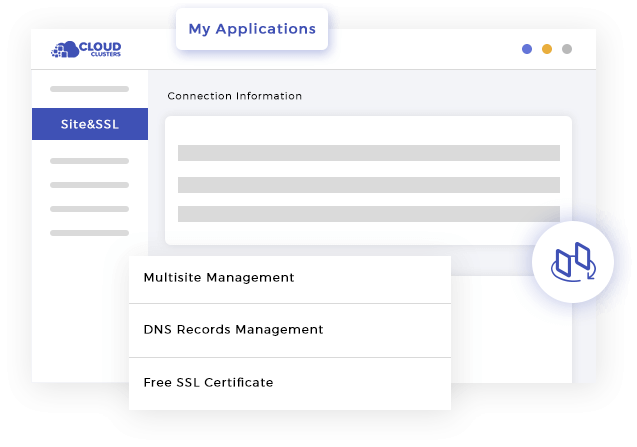
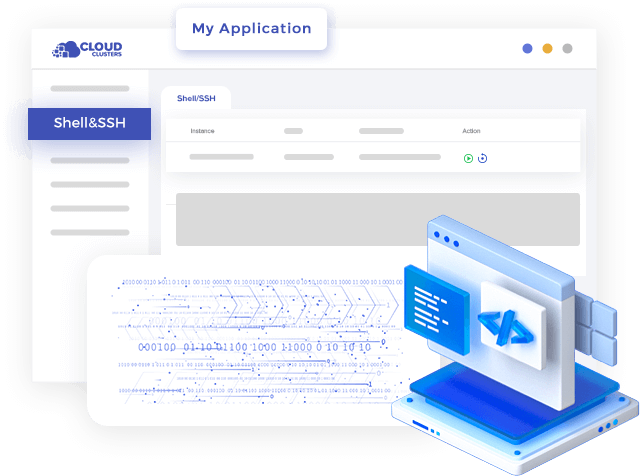
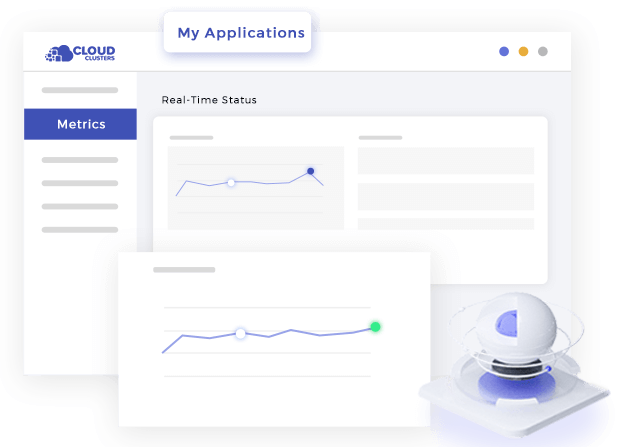
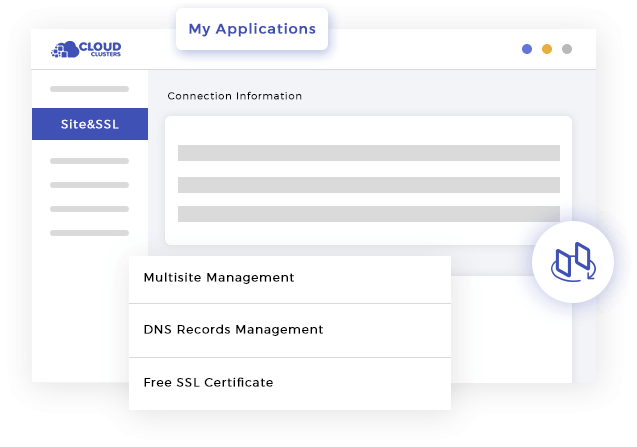
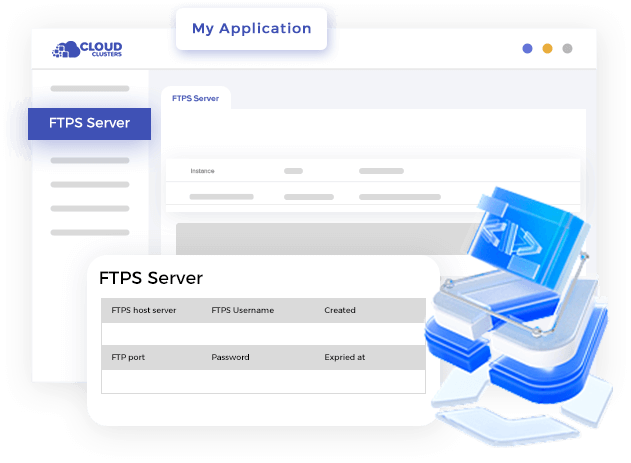
By hosting your Spring application in a reliable hosting environment, you gain the benefits of stability, performance, and security while offloading the burden of server and infrastructure management, allowing you to focus on developing and improving the functionality of your application and business logic.

Users can deploy Java environment configuration with one click, including the Java version, and enter the control panel to start the application.

Enter the control panel, users can start the service on the "FTPs Server" page, and upload their own Java project files.

Once the application is uploaded and configured, users can launch their application by visiting the domain name or IP address associated with the hosting account.

Developers can monitor the performance of the application and troubleshoot any issues using Cloud Clusters' control panel or third-party monitoring tools.
Java web hosting using the Spring framework can provide a powerful and flexible way to host and run Spring-based Java web applications.

Provide rich out-of-the-box functions and the principle of convention over configuration, which greatly simplifies the development process.

Use interfaces and dependency injection to achieve loosely coupled interactions between components and modules.

Spring MVC modules can be seamlessly integrated with Servlet API and JavaServer Pages, and Spring also provides integration with persistence layer frameworks and message queues.

Provides comprehensive security support, including authentication, authorization, encryption, and access control.

Java Spring hosting provides an environment tailored for Spring-based applications, providing the necessary infrastructure, runtime support, extensibility options, and tools for managing and monitoring Spring applications.
Java hosting allows you to deploy and run web applications built using Java technologies such as Java Servlets, JavaServer Pages (JSP), JavaServer Faces (JSF), and Java frameworks such as Spring MVC. It provides the infrastructure needed to process HTTP requests, handle business logic, and render dynamic web content.

Java is widely used to build large enterprise applications that require scalability, reliability, and security. Managed Java hosting supports the deployment of complex enterprise systems utilizing Java EE (Enterprise Edition) technologies, including EJB (Enterprise JavaBean), JPA (Java Persistence API), JMS (Java Message Service), and more.

Java hosting is often used to host backend services for mobile applications. By using Java frameworks such as Spring Boot or Java EE, developers can build server-side components of mobile applications such as RESTful APIs, push notification services, authentication services, and data processing logic.

Java hosting is used to run batch applications that process large amounts of data. Java provides a framework like Spring Batch that simplifies the development of batch jobs and makes batch processing and analyzing data efficient.

Java hosting enables the deployment of integration solutions that connect disparate systems and applications. Java provides frameworks such as Apache Camel and Spring Integration that facilitate seamless integration between disparate systems, data sources, and services.

Java hosting is also used to host game servers built in Java. A Java-based game server handles multiplayer functionality, real-time communication, and game logic, providing a scalable and reliable infrastructure for online gaming experiences.

In addition to Java application hosting, there are several other popular runtime environments that are commonly hosted.